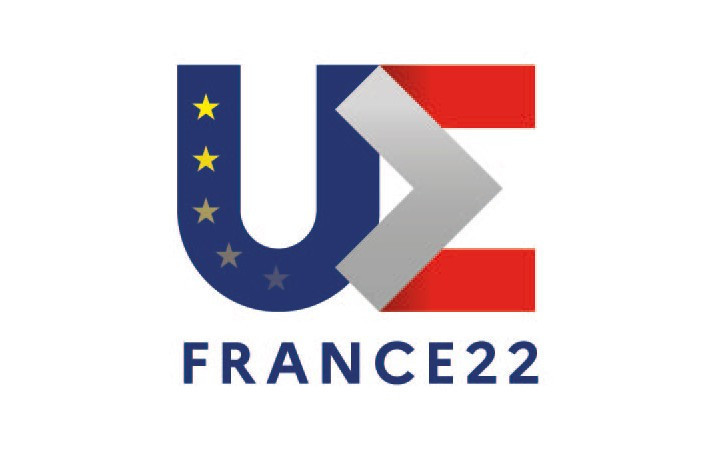Protecting Europeans Against Financial Crime and the Financing of Terrorism

Organised under the French Presidency of the Council of the European Union, this conference aims to discuss the main issues related to improving the European response to the risks of money laundering and terrorist financing.
Watch live
To watch this conference in English: please click on the wheel in the bottom right of the screen above and select the language under « Langues ».
Um diese Konferenz auf Deutsch zu verfolgen, klicken Sie auf das Rad unten rechts auf dem Bildschirm und wählen Sie unter „Langues“ die Sprache aus.
You can also watch this conference on YouTube: Morning - Afternoon
Money laundering and financing of terrorism threaten Europe’s security, the financial integrity of the internal market and the credibility of the European Union vis-à-vis its partners. A bold legislative package is being negotiated to mitigate these threats, align supervisory practices and harmonise requirements for the private sector. The package will lead to a complete overhaul of the European anti-money laundering and countering the financing of terrorism rules (AML/CFT).
The conference participants will work on the major issues related to the harmonisation of financial transparency rules, the detection of criminal threats related to the anonymity of crypto-assets and cooperation between competent national and European authorities on sharing information and financial intelligence.
This conference will be broadcasted live, except for panel 3.
+ Dowload the program >>
Hosted jointly by the Ministry for the Economy, Finance and the Recovery and the Ministry of the Interior, the conference comes as negotiations are under way for the AML/CFT legislative package, presented by the Commission on 20 July 2021 and containing three regulations and one directive. The negotiation process began in September 2021 under the Slovenian Presidency of the Council of the European Union. The package of proposals aims to fully overhaul the EU’s framework for preventing money laundering and terrorist financing through a regulation that will harmonise measures applied in the private sector, the provision of further details to improve national AML/CFT mechanisms (such as beneficial ownership registers and financial intelligence units) and the creation of a new EU supervisory authority tasked with boosting anti-money laundering efforts.
The event also comes as the Financial Action Task Force (FATF) has revived the debate around the changing face of financial crime and how to tackle it. Alongside sector players, topics like crypto-assets (e.g. Bitcoin and Ethereum) and the transparency of beneficial ownership will also be discussed.
Strengthening the EU’s international credibility via a more integrated anti-money laundering framework
A number of money laundering cases have demonstrated how important it is for the EU to bolster and standardise its legal framework, which is based on five directives that have been enacted inconsistently across the EU, as well as its supervisory capabilities. The regulatory harmonisation of private-sector AML/CFT measures and the creation of an independent and powerful new EU supervisory authority will eliminate regulatory asymmetries (roundtable 1) through better supervision of the most high-risk cross-border financial entities (roundtable 2).
In addition, the further development of public AML/CFT mechanisms, particularly beneficial ownership registers, bank account registers and real estate transaction registers, will increase the transparency of financial transactions and thus prevent money laundering and corruption risks. Pursuing these efforts will allow the EU to assert its status as a leader in financial transparency issues as it promotes the highest standards and best practices in this area (roundtable 5).
Better protecting EU citizens by enhancing investigation and cooperation capabilities
With new risks emerging, such as criminal,especially terrorist, networks exploiting the vulnerabilities of new technologies, AML/CFT measures must be adapted accordingly. This is the case for crypto-assets (e.g. Bitcoin and Ethereum), which pose significant challenges for law enforcement and courts, and require a robust framework that can prevent abuses related to their largely anonymous nature, all without stifling Europe’s innovation and attractiveness for the blockchain sector (roundtable 3).
The day-to-day work of dismantling criminal networks requires the seamless sharing of information and intelligence among specialised investigation units, courts and intelligence agencies, in compliance with data protection rules. Europe has its part to play as a key role model in this area (roundtable 4).
“Our knowledge of today’s financial flows, particularly the trading of crypto-assets, and the methods used by organised crime groups has made it necessary to tighten regulations at EU level. The French Presidency of the Council of the European Union will do everything in its power to make progress on this legislative file, without lowering its ambitions,” said Olivier Dussopt, Minister Delegate for Public Accounts.
“As economic and financial crime has become increasingly specialised and made its way into the digital economy, making this type of crime more pervasive in our society, our security forces must have adequate legal frameworks and up-to-date tools for detecting and investigating illicit activity. Our agencies must also be able to count on the unfailing cooperation of other Member States and be in a position to increase cooperation with countries outside the EU in addressing these challenges,” said Marlène Schiappa, Minister for Citizenship.
In 2019, €200bn of suspicious transactions are estimated to have been carried out in the EU’s financial system.
The French Presidency of the Council of the European Union
On 1 January 2022, for the first time in 14 years, France will took over the Presidency of the Council of the European Union. How does the Council of the EU work and what will France’s role be? Read more >>
Find information on the French Presidency of the Council of the European Union: